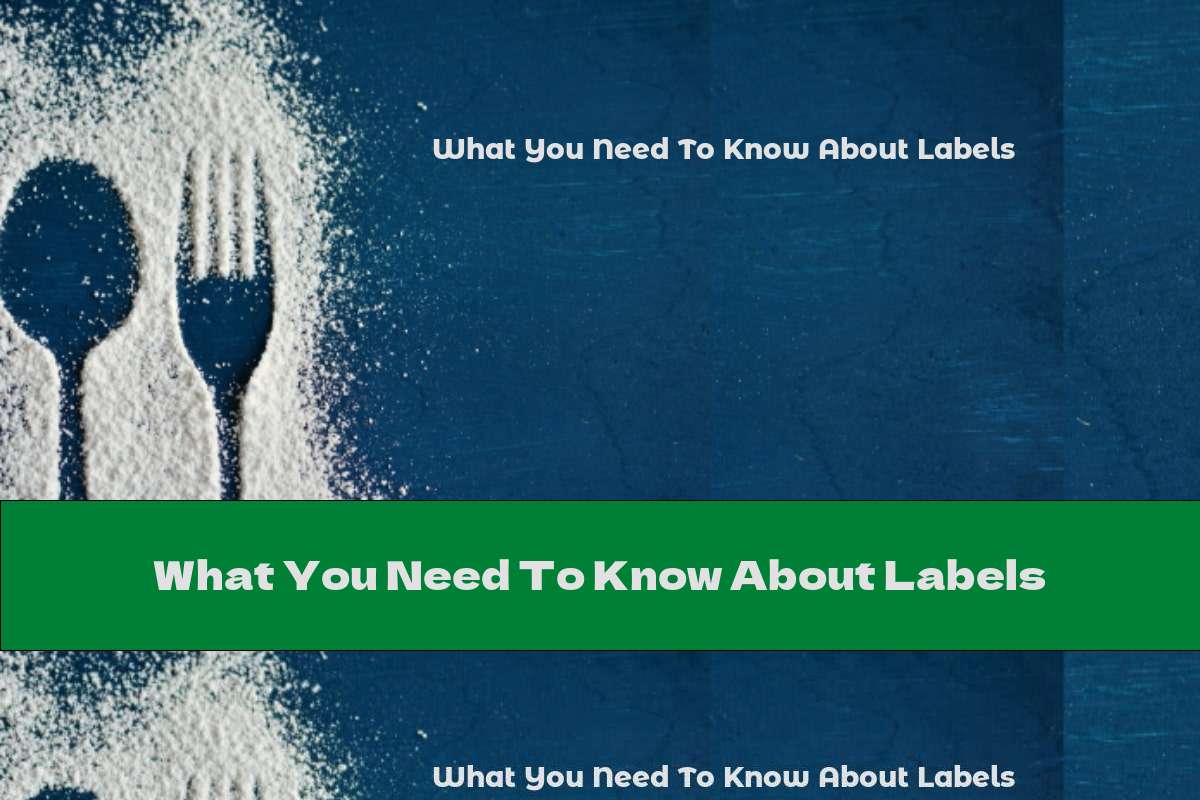What You Need To Know About Labels
 Author: Ivan Red Jr.
Time for reading: ~3
minutes
Last Updated:
February 16, 2026
Author: Ivan Red Jr.
Time for reading: ~3
minutes
Last Updated:
February 16, 2026

When choosing products, we always want to get the highest quality product, and marketers are well aware of how to hook us.
When choosing products, we always want to get the highest quality product, and marketers are well aware of how to hook us. The labels now and then flaunt inscriptions that say about selected varieties, useful microelements, environmental friendliness of the product, a high-quality whole grain variety used in the product. So what do you need to know about food labels, and are we really paying for what they say?
1. Made from natural ingredients.
Reading something like this on the label of a product, many people think that this is a really good product, but is it? In most cases, little changes in such a product, except that the number of preservatives is less, but no one has canceled sweeteners, acid fats and flavors, because the naturalness of the components is a loose concept.
2. Made from natural fruits.
As a rule, this applies to juices. You probably noticed when buying a product with a similar inscription that it only smells of fruit and there is only a slight aftertaste of one or another sweet fruit. If you pay attention to the composition, in most cases you will see that the most common concentrate is used as fruit, which, of course, can be made on the basis of fruits, but, unfortunately, one cannot count on anything more.
3. Free of cholesterol.
When reading this, think carefully, should there be cholesterol in this product a priori? After all, it is usually found only in products of animal origin. Marketers, on the other hand, enjoy your trust and do not disdain to write such heresy even on a product of plant origin. It's funny, isn't it?
4. Healthy dark chocolate.
Those who care about their health and figure, having learned about the benefits of dark chocolate, hurried to the store to empty the shelves with peace of mind. But dark chocolate is useful only when the percentage of cocoa contained in it exceeds 70%. As practice shows, marketers write about healthy dark chocolate even when the percentage of cocoa barely reaches 60%. In this case, alas, there is no benefit, especially when you consider the amount of sugar, which is certainly not in the top 10 best foods for our body.
5. Product contains whole grains.
We would be happy if everything written was always true, but if you delve into it, you can understand that whole healthy grains are extremely rare. During processing, the shell is removed from the grains, and the grain is deprived of many useful elements. Therefore, it cannot be called whole, but processed multigrain - please. In addition, if you managed to notice a “whole grain” product, do not be too lazy to check the composition: whole grains in it must be necessarily not at the end, but in the first positions.
6. Contains a lot of fiber.
Useful fiber can be considered that which comes from natural vegetables and grains. Most often, what is sold to us under the guise of products containing fiber has little to do with the benefits. The thing is that the fiber used in the product, as a rule, appears by diluting the powders in the laboratory.
7. Diet fitness product.
It would be great if all products helped us in losing weight. After all, it would seem that the inscription on the product, which says that it is dietary, is a clear helper and friend. But manufacturers reduce all dietary content to a low calorie content of the product and are often silent about how they achieve this. Most often, trans fats are used for this, which replace ordinary animal fats. By the way, it is trans fats that provoke weight gain and negatively affect the cardiovascular system.
And finally, a general advice for everyone who cares about what gets into their stomach: always pay attention to the composition of the products, and not what is indicated on the front of the package.